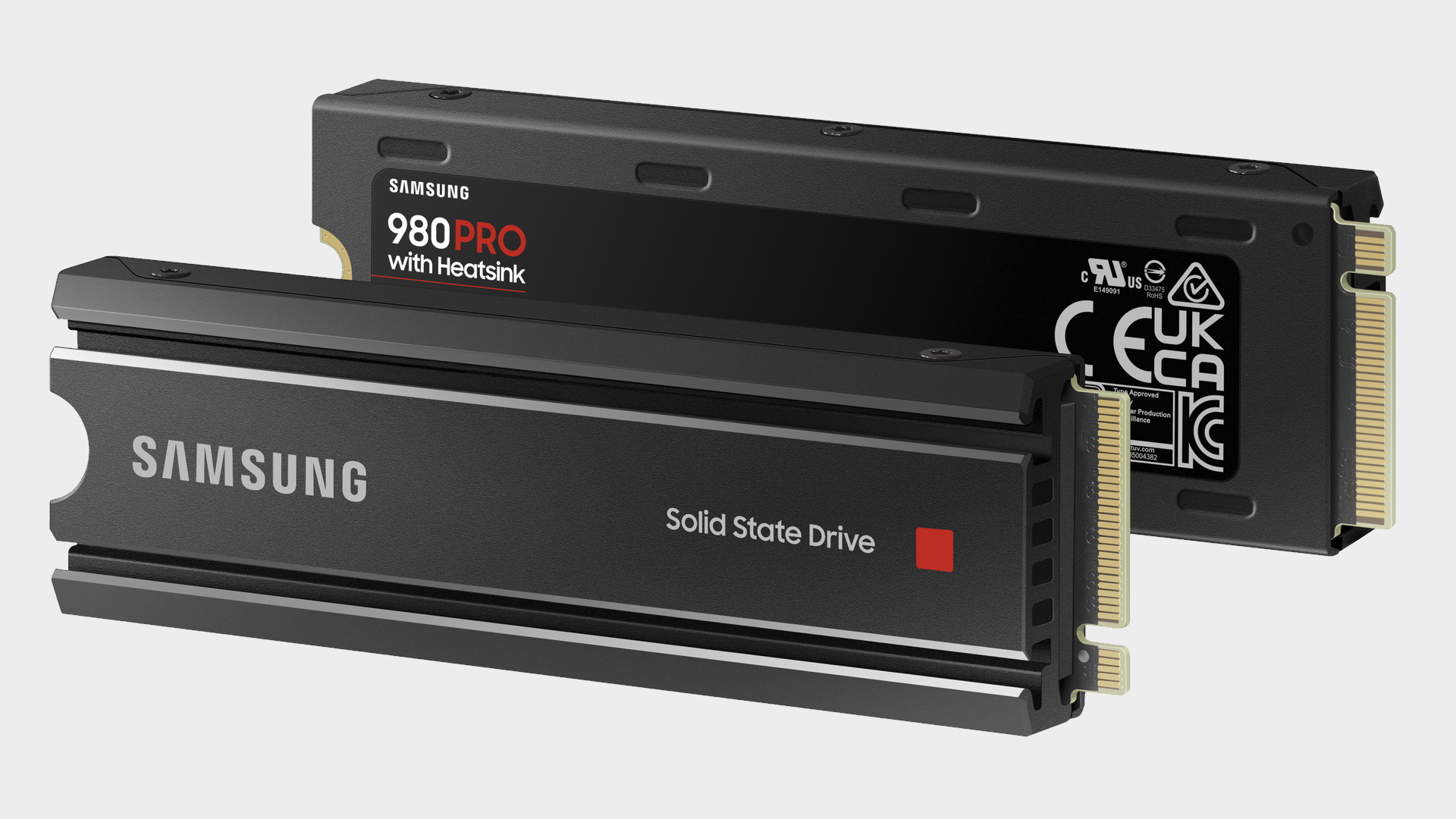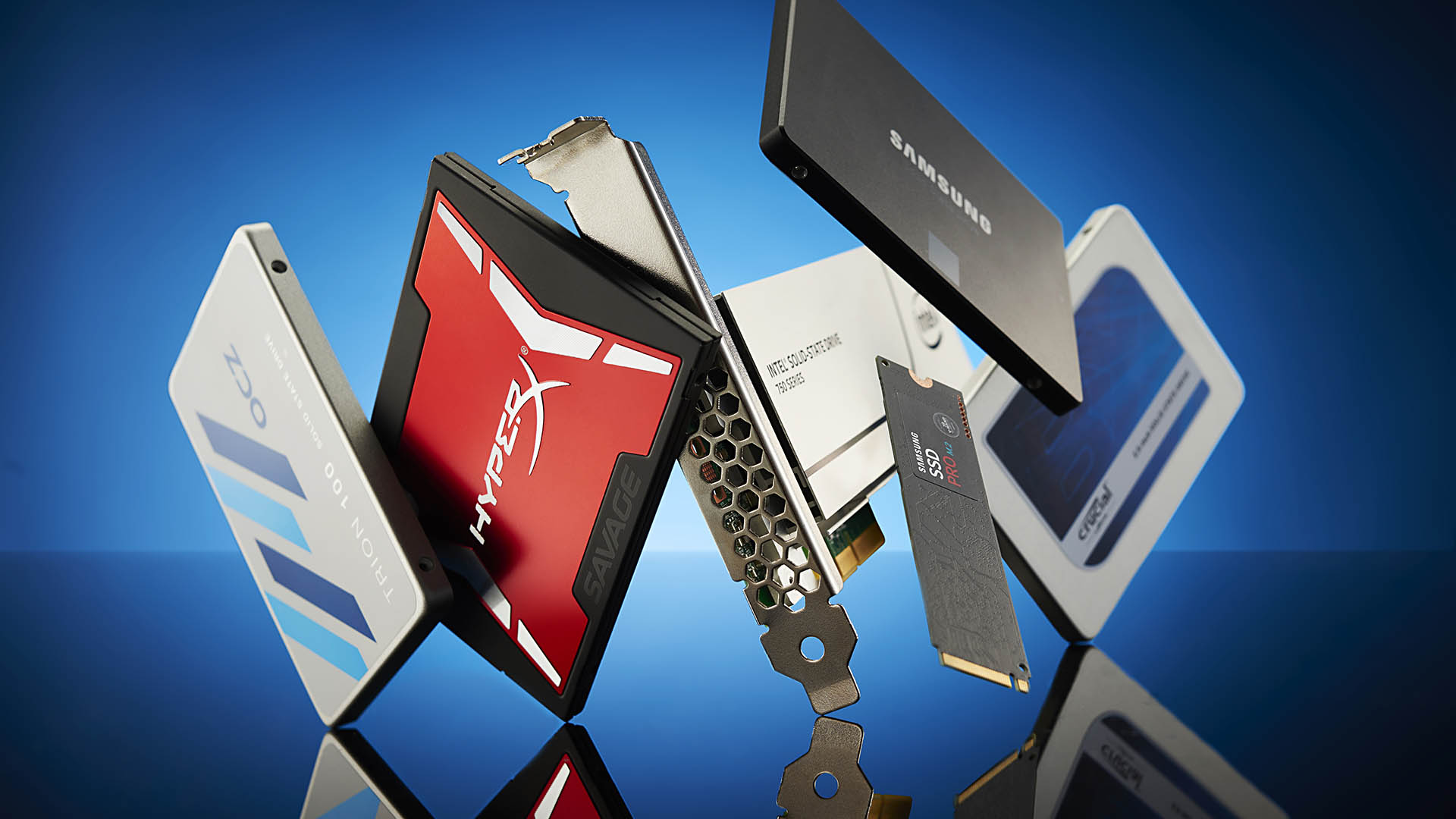An error in Samsung's 980 Pro firmware is causing SSDs to die. I'd check your drive right now tbh
Update or say goodbye to your Samsung SSD. If only that was the only issue affecting its drives today, but...

If you're rocking a Samsung 980 Pro in your gaming PC, it's time to update or it might die in front of your eyes. Even worse, if that's your Windows boot drive, your entire system may just one day soon refuse to start.
The issue was discovered by system builder, Puget Systems (via NordicHardware), which has stated that, "despite historically being some of our most reliable parts, we have received a surprising number of reports of failing Samsung drives, specifically with the 2TB version of the 980 Pro."
It goes on to say that, working with Samsung itself, it has been confirmed that the firmware the 980 Pro SSDs were shipping with were responsible for these failures and that they need to be updated as soon as possible.
The drives were failing by suddenly becoming locked into read-only mode which effectively makes the SSD completely unusable as it can no longer be written to. As your OS is constantly making read/write actions as part of its general process, that means your system just will not start.
Puget Systems says that the issue has happened specifically with the 2TB version of the drive, but does say that Samsung "recommends users update the firmware on all 980 Pro drives to the latest version (5B2QGXA7) to prevent the issue from occurring."
It says that the firmware update should just be an in-place upgrade and should preserve all current data, but just in case it would be wise to back up if possible.
The affected version of the firmware is 3B2QGXA7, though Puget Systems claims that drives running the 4B2QGXA7 firmware should be fine, even if Samsung is recommended the more recent update.
The biggest gaming news, reviews and hardware deals
Keep up to date with the most important stories and the best deals, as picked by the PC Gamer team.
There's currently nothing listed on the Samsung newsroom itself, so we don't know if it is communicating with its customers directly, but Puget Systems is reportedly in touch with all its potentially affected customers by email today.
The fix is simple, simply download the Samsung SSD Magician software from the SSD support site, and once installed open the application and navigate to the update tab and update the firmware from there. Easy. No dead SSD.

Best SSD for gaming: the best solid state drives around
Best PCIe 4.0 SSD for gaming: the next gen has landed
The best NVMe SSD: this slivers of SSD goodness
Best external hard drives: expand your horizons
Best external SSDs: plug in upgrades for gaming laptops and consoles
Samsung's not having a great time with its SSDs right now. Not only is the 980 Pro at risk of imminent death if it's not updated, there are numerous reports of the newer 990 Pro drives suffering from declining health. In the same SSD Magician software that can come to the rescue of the 980 Pro, users are reporting issues with the drive health of their new SSDs rapidly dropping.
On this issue, however, Samsung is seemingly refusing to accept responsibility and drives sent back to the manufacturer are being returned with claims that no defect has been found. Basically, you're sh!t out of luck, son.
After the initial reports had been picked up in various forums and publications, Samsung's RMA division has been in touch with the original Neowin poster to replace the drive and try to replicate the issue.
After reading your article, I thought I'd take a look at mine. The results are horrendous! 36% worn out after writing less than 2TB of data? @SamsungUK what is going on? pic.twitter.com/VdzLoEAarNJanuary 22, 2023
But, given the response across the different forums and social networks, this doesn't look like an isolated incident and I'd probably expect another firmware update warning to be issues soon for the 990 Pro, too.

Dave has been gaming since the days of Zaxxon and Lady Bug on the Colecovision, and code books for the Commodore Vic 20 (Death Race 2000!). He built his first gaming PC at the tender age of 16, and finally finished bug-fixing the Cyrix-based system around a year later. When he dropped it out of the window. He first started writing for Official PlayStation Magazine and Xbox World many decades ago, then moved onto PC Format full-time, then PC Gamer, TechRadar, and T3 among others. Now he's back, writing about the nightmarish graphics card market, CPUs with more cores than sense, gaming laptops hotter than the sun, and SSDs more capacious than a Cybertruck.

